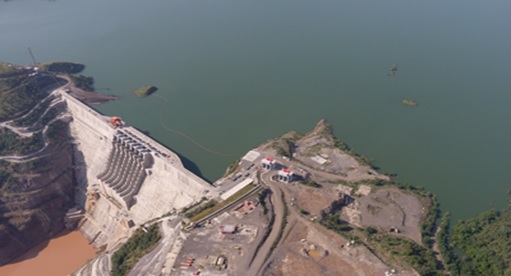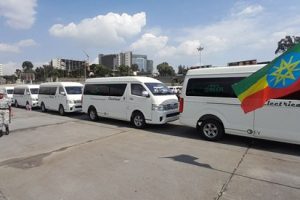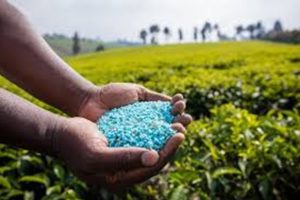
BY MENGISTEAB TESHOME
It is clear that having access to modern energy sources is essential for economic development and livelihood improvement. Access to modern energy supports both income generation activities and the national development agenda through improving education, reducing indoor air pollution, and ensuring environmental sustainability.
Ethiopia is a largely rural country, but much of East Africa is rapidly urbanizing, and the demand for energy is growing at an alarming rate. Throughout Ethiopia, energy consumption is primarily derived from biomass that accounts for 91% of the energy consumed. The share of petroleum is around 7% of the whole primary energy in Ethiopia. Energy provided by electricity is less than 2% of the total energy demand in the country. Ethiopia’s current electricity access is only 44% where grid connections provide 33% of connectivity and off-grid solutions provide 11%.
Ethiopia’s renewable energy potential and how adding the primary energy source can help achieve sustainable development and bridge the issue of energy access. Concepts and methods of peer-reviewed articles on renewable energy are analyzed and reviewed thoroughly so as to attain these goals. The finding of this study shows Ethiopia depends heavily on biomass fuel for energy source; it also indicates electricity use in the country’s commercial, manufacturing, and service sector is negligible which clearly implies the countries’ energy poverty.
However, Ethiopia is blessed with renewable energy sources such as hydro, solar, wind, biomass, geothermal, etc., and the data implies renewable energy sources are more than enough to meet Ethiopia’s energy demand if appropriate policy actions are enforced. The energy supply, particularly the electricity source, is dominated by large hydropower. But the rainfall differs significantly in Ethiopia from year to year; therefore overreliance on hydropower can make the supply of energy very unpredictable. Further energy diversification is critical for the sector’s sustainable development. Energy shortage impedes rural development. In Ethiopia the rural economy is lagging behind on the overall development of the country. Renewable energy sources can play a role in alleviating this development issue.
Sustainable water resources management is essential to socioeconomic development, improved livelihoods, and resilience to climate change. As one of the fastest growing economies in Africa and second most populous country, Ethiopia is pursuing ambitious development strategies to become a low-middle income country by 2025, with increased investment in hydropower, irrigation, and water supply expansion. Although Ethiopia is known as the “Water Tower of Africa,” the country’s water resources are unevenly distributed, and drought and water scarcity are recurring challenges.
World Resource Institute (WRI) finds many of the country’s twelve river basins are water stressed and nearly 25 percent (27 million) of the population live in areas of high water stress. Growing water demands, climate change, and watershed degradation are intensifying pressures on the country’s natural resources and threaten to exacerbate water insecurity.
According to WRI, managing water use across sectors and enhancing water governance requires accessible, transparent data. WRI is enhancing available data on water and climate in Ethiopia and working to integrate water into planning processes within and across sectors. WRI developed a model to assess Ethiopia’s water supply and sectoral water demand as well as current and projected water risk based on growth and climate change. We are enhancing institutional capacity within the Minister of Irrigation and Lowland Areas Development and Development to assess and manage rising water and climate constraints to growth and development and integrate these considerations into development planning processes.
Protecting natural ecosystems and safeguarding watershed health are critical to securing long-term water supplies. Nature-based solutions for water such as watershed reforestation and soil and water conservation measures can improve the quantity, timing, and reliability of water by reducing erosion and flooding and improving water quality and availability. WRI is collaborating with the Abbay Basin Development Office and other partners to promote integrated water resources management and watershed conservation in the Tana sub-basin to address land degradation and water and food insecurity.
To reduce water-related vulnerability in the context of rapid urbanization, WRI and partners are working with six African cities to overcome challenges of water scarcity, flooding, and watershed degradation through land use planning, city-region cooperation, multi-stakeholder action planning, and targeted finance. WRI’s Urban Water Resilience in Africa initiative works to improve understanding of urban water challenges, promotes adaptation pathways, and enables city stakeholders to share experiences.
Through this initiative, WRI is supporting Addis Ababa and Dire Dawa in Ethiopia. Through the Cities for Forests initiative, WRI is also working with Addis Ababa’s River Basins and Green Areas Development and Administration Agency, Gulele Botanic Garden, Ethiopian Space Science and Technology Institute, and the Mayor’s office to build capacity in planning, implementation, and monitoring of urban green spaces and forests in nearby watersheds.
In the same effort, Ethiopia has been participating in the second high-level international decade for action “Water for Sustainable Development”, 2018-2028, which is organized by the Government of Tajikistan in cooperation with the United Nations and its entities in the city of Dushanbe.
It was learnt the meeting aims at supporting sustainable development and integrated management of water resources, while promoting cooperation and partnership to achieve internationally agreed water-related goals and targets, including those contained in the 2030 Agenda for Sustainable Development. In the moment a high-level delegation, from the Ministry of Foreign Affairs and Ministry of Water and Energy, led by Ethiopia’s State Minister of Water and Energy Dr. Abraha Adugna is participating in the conference.
Speaking at the event, Dr. Abraha Adugna reiterated Ethiopia’s commitment to the implementation of Sustainable Development Goal 6 (SDG 6) which sets out to ensure the availability and sustainable management of water and sanitation for all. To realize the objectives of SDG 6, the Ethiopian Government has integrated it into its Ten-year National Development Plan further creating partnerships with local and external development actors, he said.
However, COVID-19 and Climate Change induced drought have threatened the implementation process that still needs intervention to address the needs of 50 million Ethiopians who have got no access to an adequate and safe Drinking water supply and 80 percent of the population who are subject to poor sanitation, he added.
The State Minister said, supporting various engagements in environmentally friendly and efficient hydraulic infrastructure developments, such as the Green Legacy Initiative and the Grand Ethiopian Renaissance Dam project, restore wetland ecosystems and foster regional partnership. Depoliticizing water issues and forging genuine partnerships are indispensable to tackle the common challenges the country has faced regarding water, he added.
The outcome of the conference will produce a final declaration and a co-chair’s summary document will consolidate the critical views of the stakeholders on key actions and partnerships necessary to take the water sector agenda forward globally and provide valuable inputs for the preparation of the UN 2023 water conference at the United Nations headquarter. On the sideline of the meeting, State Minister Dr. Abraha had a bilateral meeting with the Vice Minister and Special Envoy for water affairs of the Netherlands and discussed issues of mutual concerns.
Finally, since management of water resources is an essential part of the efforts and actions needed to ensure sustainable and equitable development for all Ethiopians exerting efforts in all directions to make sure the set goal is met. One of the paths is putting the right policies because a better knowledge of water resources and their use is fundamental to have the instruments for defining and implementing appropriate guidelines.
The Ethiopian herald June 21/2022





